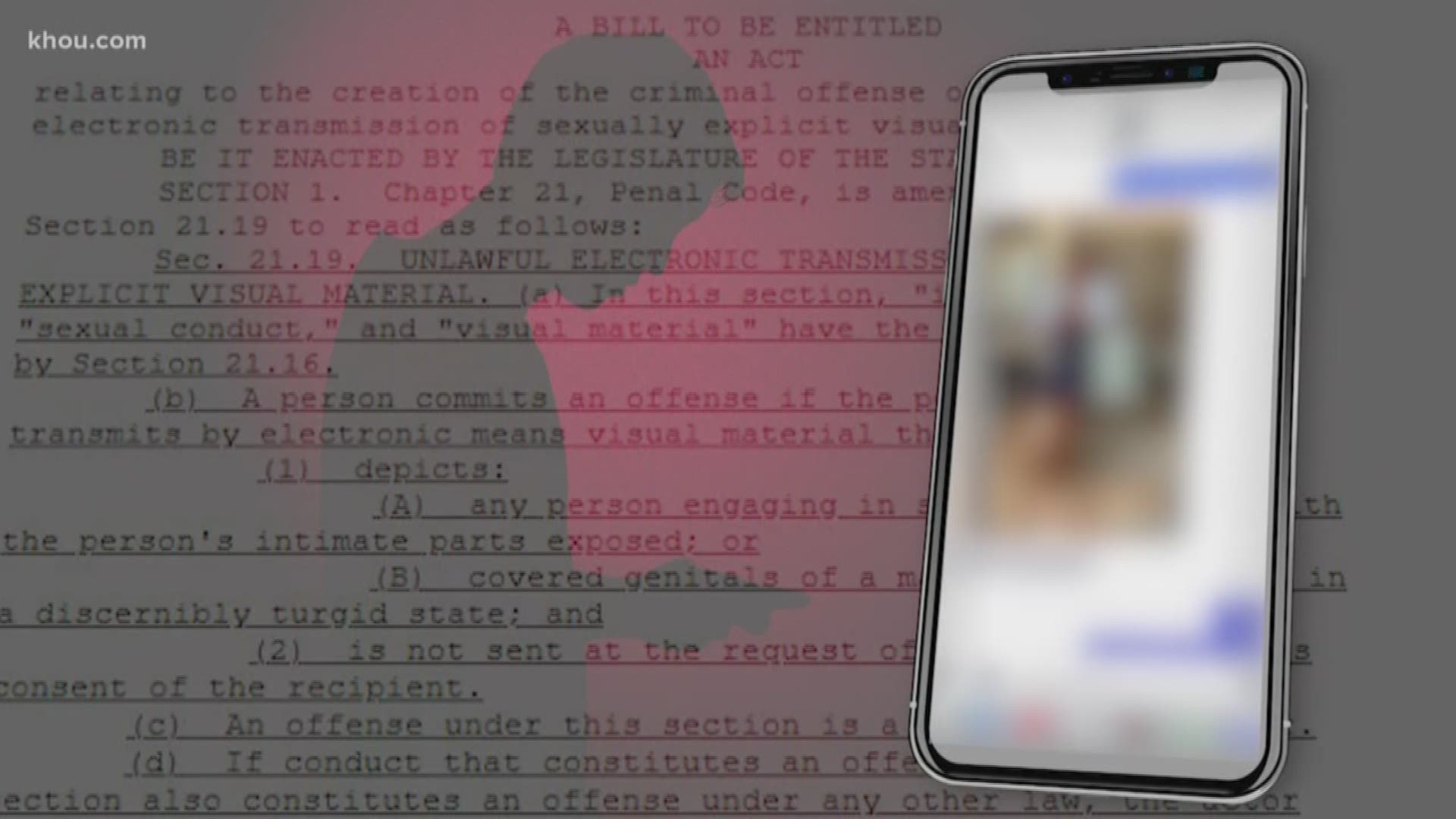HOUSTON — Sending unsolicited nude pictures is now a crime in Texas. It’s one of the new laws that rolled out on Sept. 1.
But how do you report the crime? What exactly do you need to keep as evidence?
It is now a Class C misdemeanor "if the person knowingly transmits by electronic means visual material that depicts: a person engaging in sexual conduct or with the person’s intimate parts exposed OR covered genitals of a male person that are in a discernibly turgid state AND is not sent at the request of or with the express consent of the recipient."
Whether you get that unwanted pic on your phone, on social media, through an e-mail or dating app, police say save it all.
"Yeah, it’s just become a larger problem. I guess the internet’s not going away, right?" said Sgt. Luis Menendez with the Houston Police Department.
Sgt. Menendez investigates internet sex crimes. Enforcing this new law, he said, comes down to intent and evidence.
“Communication is key with whoever you’re talking to," Menendez said. "So make sure that you get permission before sending such a picture. If you are a person that does receive a picture like that, make sure that you save as much evidence as you can. Don’t delete anything that you receive. Don’t delete any of the messages, even if they do not show you in a favorable light, make sure that we have the full picture.”
The crime isn’t something you report through 911. Instead, call the non-emergency line for police or make a report at the nearest law enforcement station.
The charge has the weight of a traffic ticket so cops aren’t going to go get a subpoena to search a phone or a dating app.
But know this: the citation could come up on a background check.
"It’s a different ballgame. I think you just have to be very careful at what you send," Menendez said.
Because it doesn’t matter who’s in the photo. The law protects against unwanted sexually explicit images. But critics say, in theory, sending a photo of a mom breastfeeding could be considered criminal. Or what if someone claims they sent the photo by accident? Some lawyers anticipate this new state law will be challenged in court.
EXTENDED INTERVIEW WITH POLICE ABOUT THE NEW LAW

